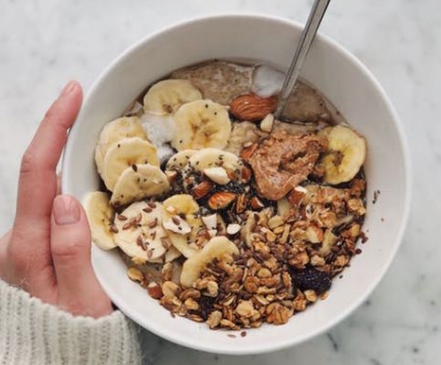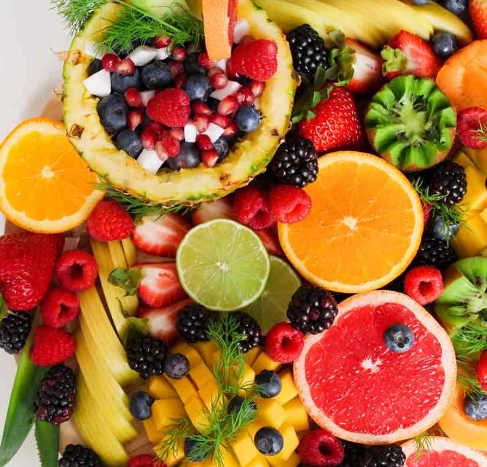Do you often feel sluggish in the middle of the day, or find yourself reaching for sugary snacks to get a quick boost? Your energy levels throughout the day are largely determined by the foods you eat. By choosing the right nutrients, you can fuel your body for sustained energy and avoid the dreaded afternoon slump. Here are some of the best foods to keep you energized and help you power through your day.
First, let’s talk about complex carbohydrates, which provide a steady source of energy. Unlike simple carbohydrates, which cause a quick spike in blood sugar followed by a crash, complex carbs are broken down slowly, providing a steady flow of energy. Whole grains like oatmeal, quinoa, brown rice, and whole wheat bread are excellent sources of complex carbs. These foods are also rich in fiber, which helps with digestion and keeps you feeling full longer.
Another great energy-boosting food is lean protein. Protein helps stabilize blood sugar levels, preventing the crashes that can leave you feeling tired. It also provides the building blocks your body needs to maintain muscle mass and repair tissues. Good sources of lean protein include chicken, turkey, eggs, tofu, lentils, and beans. You can incorporate protein into every meal and snack to help maintain energy levels throughout the day.
Healthy fats are another important part of the energy equation. Contrary to popular belief, fat is not the enemy; in fact, it plays a crucial role in energy production. Healthy fats, such as those found in avocados, nuts, seeds, and olive oil, provide long-lasting fuel for the body. These fats are also essential for brain function, hormone regulation, and the absorption of fat-soluble vitamins. Including healthy fats in your diet can help keep your energy levels steady, especially during long periods without food.
In addition to these macronutrients, fruits and vegetables are key for maintaining optimal energy levels. They are packed with vitamins, minerals, and antioxidants that help protect your cells from damage and support your metabolism. Specifically, fruits and vegetables rich in vitamin C, like oranges, strawberries, and bell peppers, can help reduce fatigue by supporting your immune system and fighting inflammation. Leafy greens, such as spinach and kale, are excellent sources of iron, which is essential for preventing fatigue and maintaining energy.
Another powerhouse food for energy is nuts and seeds. These small but mighty snacks are packed with protein, healthy fats, and fiber, making them perfect for stabilizing blood sugar and keeping energy levels high. Almonds, walnuts, chia seeds, and pumpkin seeds are great options. They’re also convenient for on-the-go snacking, so you can keep a handful with you to curb hunger and maintain steady energy.
Water is often overlooked when it comes to energy, but dehydration is a common cause of fatigue. Even mild dehydration can leave you feeling tired, sluggish, and mentally foggy. Drinking enough water throughout the day ensures that your cells stay hydrated and your energy levels remain consistent. Aim to drink at least eight 8-ounce glasses of water a day, and more if you’re physically active.
For a quick energy boost, you can also turn to smoothies made with a combination of fruits, vegetables, protein (like Greek yogurt or protein powder), and healthy fats (such as avocado or chia seeds). Smoothies are easy to make, customizable, and packed with nutrients that can keep you energized for hours.
One food to avoid for sustained energy is sugary snacks and drinks. While they may provide a temporary rush, they also lead to a rapid drop in blood sugar, leaving you feeling fatigued and craving more sugar. Instead of reaching for candy or soda, opt for whole foods that combine protein, healthy fats, and complex carbs to maintain a balanced energy level throughout the day.
Finally, it’s important to focus on eating regularly throughout the day. Skipping meals or waiting too long between meals can lead to low blood sugar, which can cause feelings of fatigue and irritability. Aim to eat balanced meals and snacks every 3-4 hours to keep your energy levels stable and prevent overeating later on.
In conclusion, the key to sustained energy is fueling your body with the right foods. By incorporating a variety of complex carbs, lean proteins, healthy fats, and nutrient-dense fruits and vegetables, you can maintain a steady flow of energy throughout the day. Drink plenty of water, avoid sugary snacks, and listen to your body’s hunger cues. With the right foods, you’ll feel energized, focused, and ready to take on whatever the day brings.





